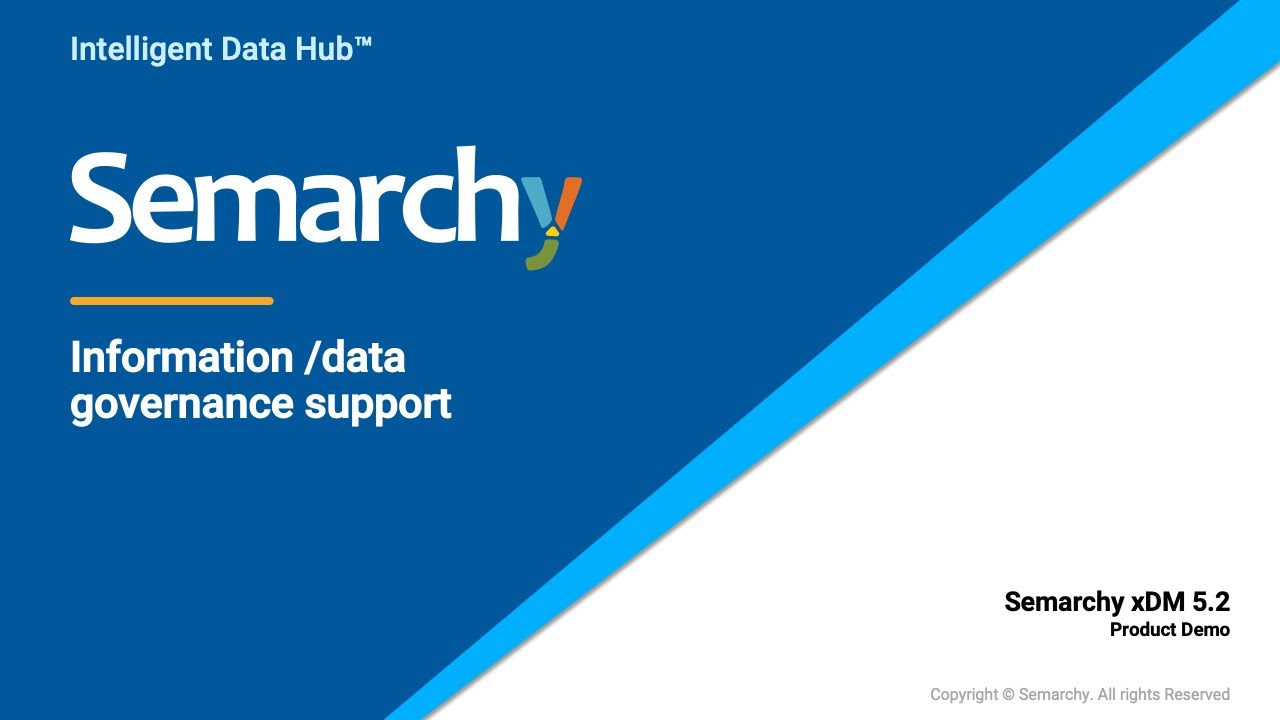In this rapidly changing world, data plays a crucial role in the success of any business. It is helpful in analyzing and understanding trends to get insight into customer behaviour.
Armed with data, a company can craft more effective and efficient strategies to offer more value and become more competitive. Data is therefore crucial to the long-term growth and success of a business.
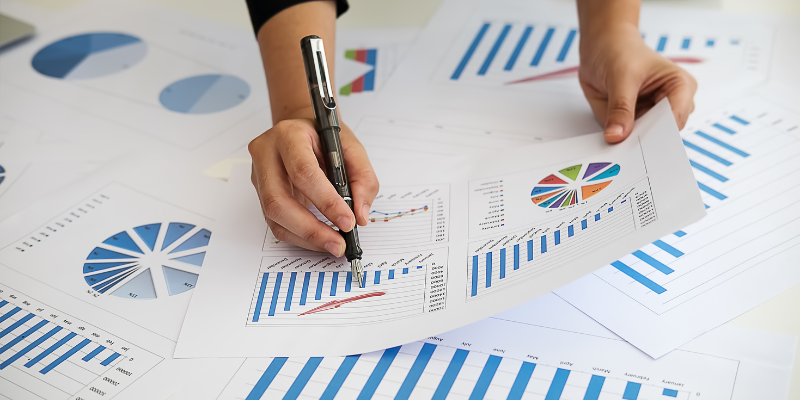
However, with this power comes a responsibility to manage the data well. This is where data governance comes in. This post will introduce what data governance is, why you should care and tools to help you.
What is Data Governance?
Data governance involves creating and enforcing policies and procedures that ensure that an organization’s data is always available, useful, accurate, and secure. Simply put, it is made up of all the rules a company puts in place to ensure that data is well-managed.
Without effective data governance policies, data is at risk of landing in unauthorized hands, being lost, or losing its integrity.
Why is Data Governance critical?
Data governance is essential as it ensures that data remains:
- Accurate and reliable: Write and edit access to data can be limited therefore providing that edits are verified and intentional
- Secure and Protected: Read and write access to data can be scoped, and people can have different permissions to ensure that only they can access enough data to perform their duties. This helps ensure customer privacy and keeps data secure.
- Compliance with regulations: Legislative regulations with regard to data handling may be incorporated into the data policy. Enforcing its own policy can ensure that it is compliant with regulations.
- Useful: Effective data governance ensures that a company collects the data it needs to drive insights and decisions
What are Data Governance tools?

As with any task, software tools can be used to automate and make processes more secure and efficient. Data governance is no exception, with its own vast ecosystem of tools that aid in managing and enforcing secure access to data.
Among others, these tools function in data cataloging, managing metadata, ensuring data quality, and archiving data.
How do data governance tools work?
Data governance is not a single task. It is rather a set of practices that have to be done to ensure that data remains available, usable, discoverable, and known. As a result, data governance software is usually a platform that includes features and tools to help you manage your data. Typically, a platform will include a data catalog, metadata manager, data profiler, and access control lists.
Importance of using tools
Data governance tools are important because they help you:
- Increase productivity through automation of the various data governance and management tasks which include data discovery and metadata management. This means you can accomplish more with less and in less time
- Improve access to information by making it easier to search for information as there is a centralized repository of all the data a company has and what is contained within each dataset. Therefore, looking for data to create reports and gain insights will be easier and faster.
- Improve collaboration as different people can contribute towards the data governance policy. This helps your governance policies and practices evolve with time.
- Ensure compliance as different internal policies can be created to ensure data practices comply with the different regulations. As a result, you will mitigate the risk of getting penalties for non-compliance with regulations.
- Promote the security of data as policies for masking and having sensitive data can be created and managed centrally. Additionally, you can ensure that personally-identifying information is properly managed and protected. This is important to gain the trust of customers and data subjects.
Features of tools

Most data governance applications have different features that make them unique. However, good data governance software should include the following in order to help you protect your data and maintain its quality.
Data catalog
A data catalog is a list of all data assets that your business owns in the different applications, data warehouses, and databases that you use. This is the central part of any data governance program, as it enables you to keep track of what data you own, where it is, and who can access it. You cannot govern what you do not know about. Therefore, the first step in any data governance program is to discover and list all the data you own in a data catalog.
Metadata management
A catalog alone is not useful without additional context. That’s where metadata management comes in. Metadata is simply data about data. In this case, it is data that explains your data assets, including the data they store, who manages the data, who owns it, who has access to it, and the different policies governing how that data can be used.
Data profiling
Profiling data enables you to identify sensitive data such as personally-identifying information. This information can be automatically detected, and policies put in place to ensure that it is protected. This builds trust with your customers and helps you comply with privacy regulations.
Data lineage
Data lineage shows how data flows from its different sources to the different reporting and analytics tools that your business uses. This helps manage and maintain data quality as it shows where the data is coming from and how reliable it is.
Access Control
Access Control helps you manage who has access to different data assets. Often, this is done with the philosophy of providing team members with the least amount of data possible to enable them to carry out their work. This helps secure the data and promote privacy.
While there are many tools to help you manage your data, listed below are some of the best tools.
OneTrust
OneTrust strives to make trust your business’s unique selling point. They offer a platform to manage all your customer’s data.
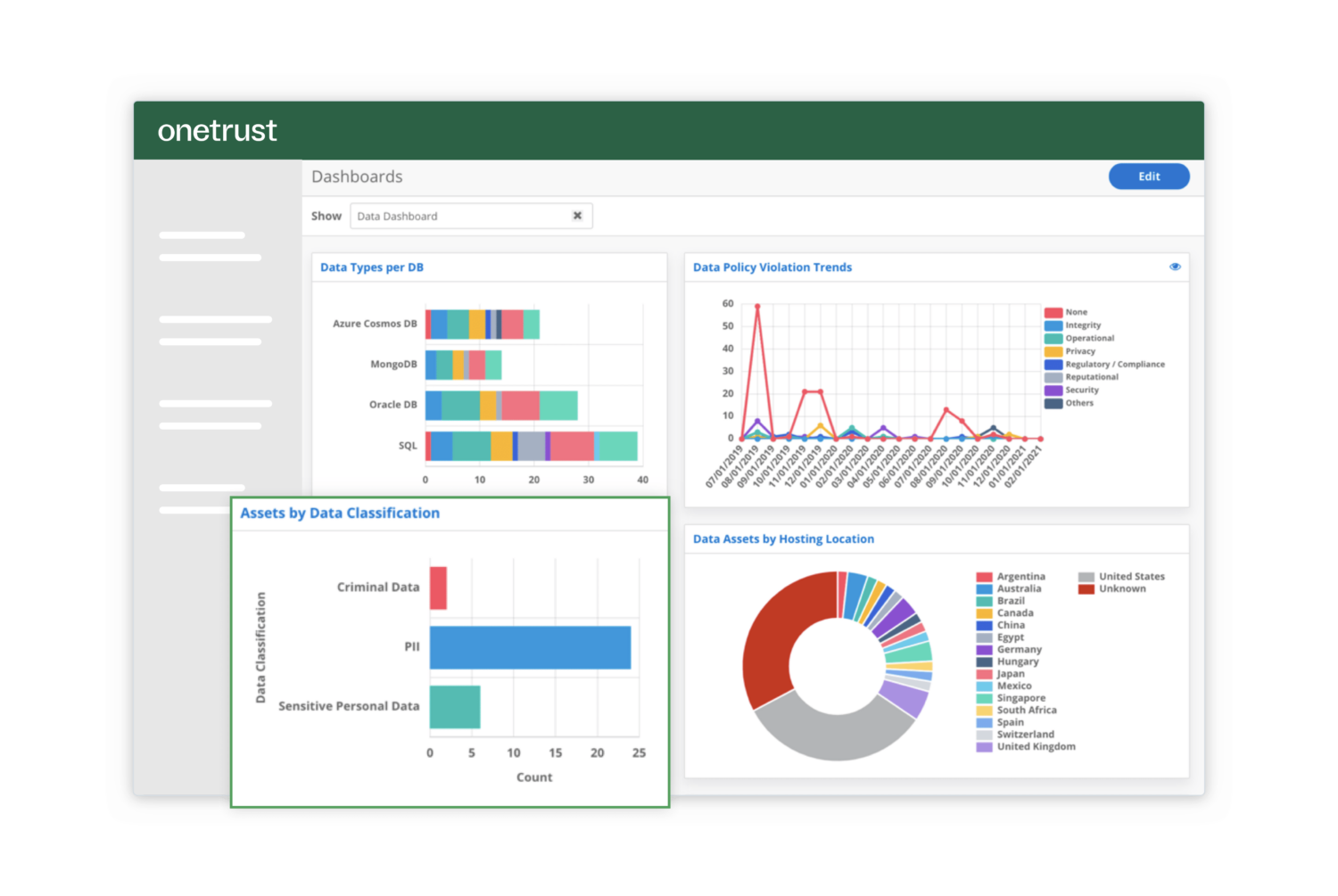
Their product features include easy data discovery to list all the datasets your business uses, privacy through user access and permissions, and an easy way to get feedback from business users of the system in order to improve the effectiveness of data governance policies. OneTrust offers two products, a Data Catalog and an AI-powered Data Discovery tool.
Alation
Alation offers a rich set of tools for data governance.
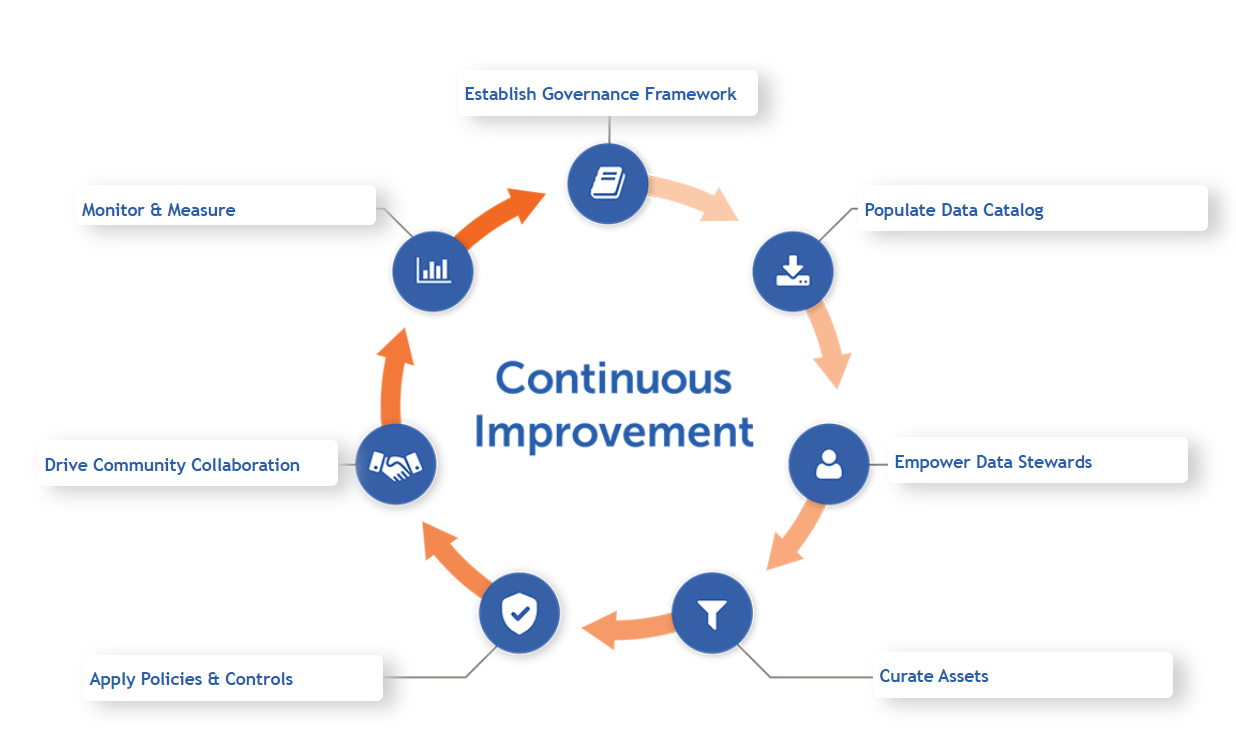
Its products include a data catalog to keep track of all your data sources, data source connectors to bring in data from different systems your business already uses, a platform for metadata management and search and discovery, and a data governance app to simplify data management. In addition, Alation offers a cloud service for storing all your metadata and catalog.
Egnyte
Egnyte is a single platform that offers many tools and features. These include file sharing and file access management across the organization, lifecycle management for datasets, file access governance to restrict users’ access to documents on a need-to-know basis, and threat management.
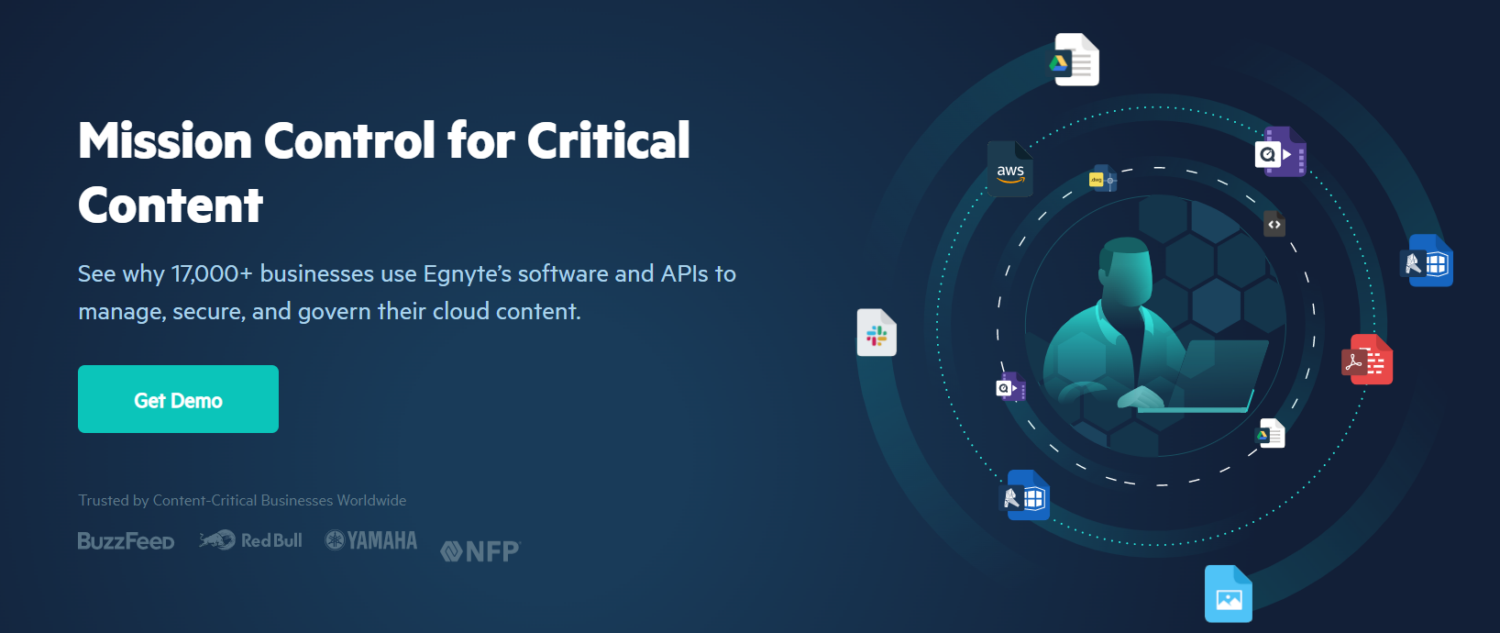
In addition, it offers integrations and a custom developer API to extend the platform’s capabilities. It enables multi-source governance, which means you can manage data from multiple repositories on the same platform.
Collibra
Collibra enables the creation of shared business language across different data sets. This is because all your data is managed from one central platform. Additional rules and policies can also be created from this central platform.

You can also assign different employee rules, such as data stewards, owners, or custodians, so you know who is responsible for what. In addition, Collibra offers a Data Catalog and Data Lineage system that you can use to show the relationship between different data sets and applications.
Like most platforms, you can integrate Collibri with add-ons and use the API to build custom solutions tailored to your business.
Informatica
Informatica offers a data management platform, used by several other large brands, such as KPMG, VMWare, and Hello Fresh.
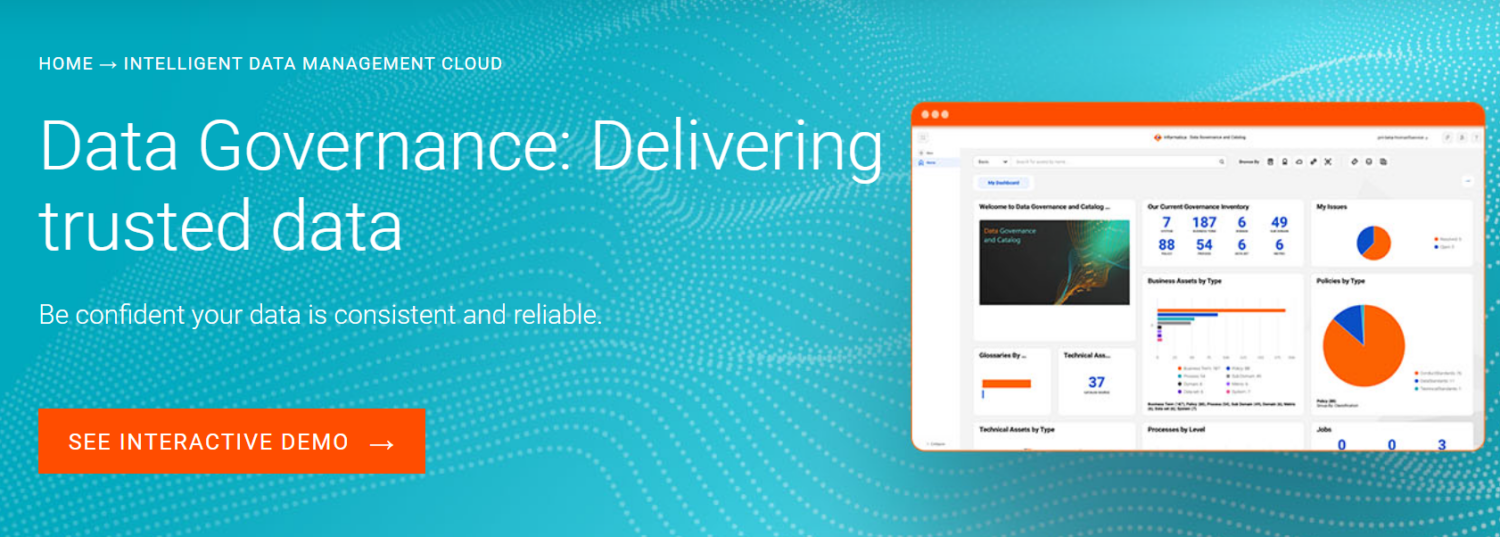
Informatica it includes a data catalog to manage all your data assets and machine learning models. This catalog details the data assets that your business currently owns, the schema that those data assets use, the policy around how to access the data, and the restrictions on how it can be used.
This provides a central place to search for data within your organization for building analytics models In addition, it includes a data marketplace and tools for managing data quality and data lineage.
Talend
Talend provides a unified platform for managing data assets. This platform includes a data catalog to keep track of your business’s data.
In addition, the platform also includes a data profiling tool to inspect and better understand all the data sources. It also includes data lineage to track data flow between different systems and applications used within the organization.
Alteryx
Alteryx is a fully-fledged data governance platform. It has all the necessary features, including a data catalog to discover and organize all the data assets your business, owns and manages.
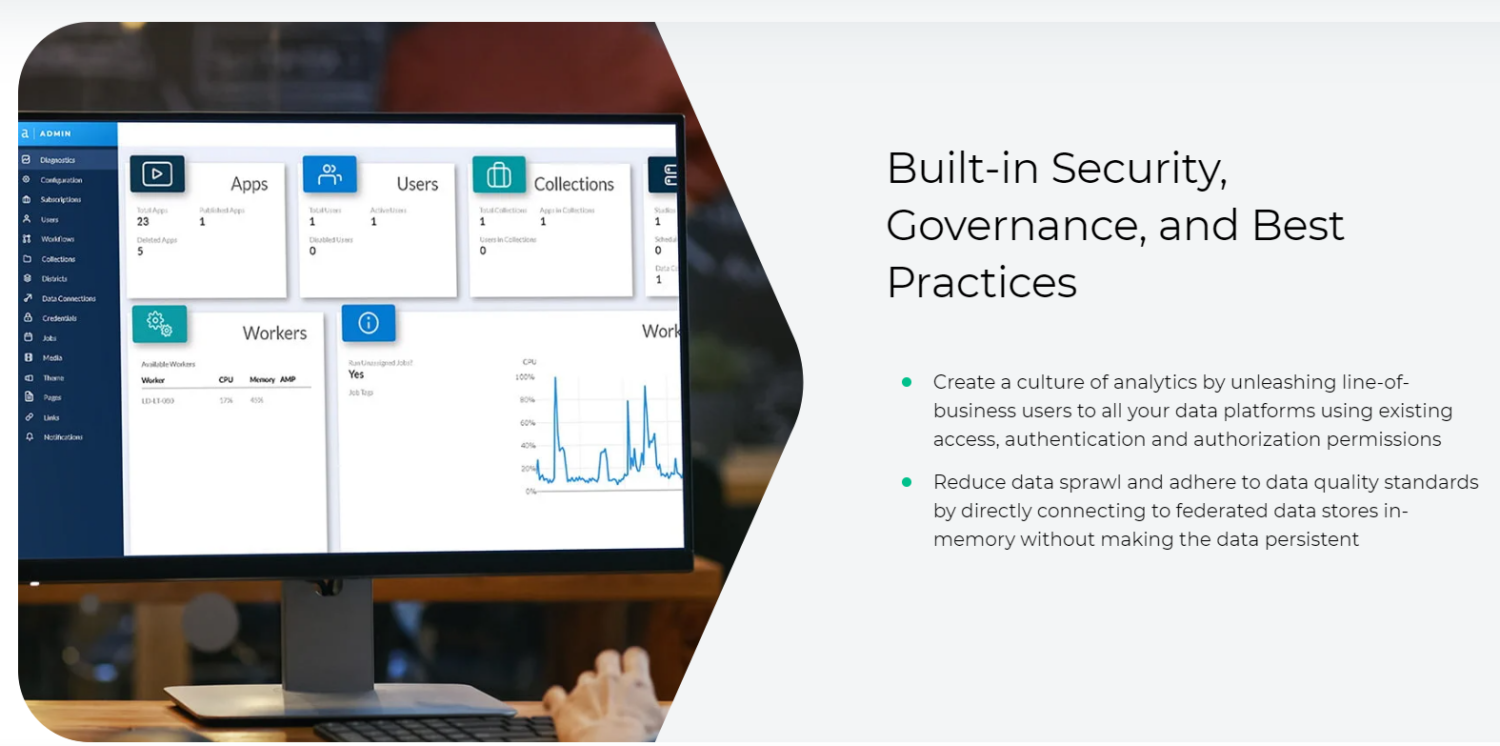
In addition, it has data lineage tracking to keep track of how data moves from its source to different reports and analytics your business uses to ensure that it is accurate and its quality is maintained. It also has tools for masking and anonymization to help comply with privacy regulations such as GDPR.
Alteryx also allows you to manage access to data based on roles and permissions to ensure that employees have the minimum amount of data they need to do their work and nothing more.
Atlan
Atlan is a community-centered data governance platform that promises a unique approach to data governance that avoids bureaucracy and complexity.
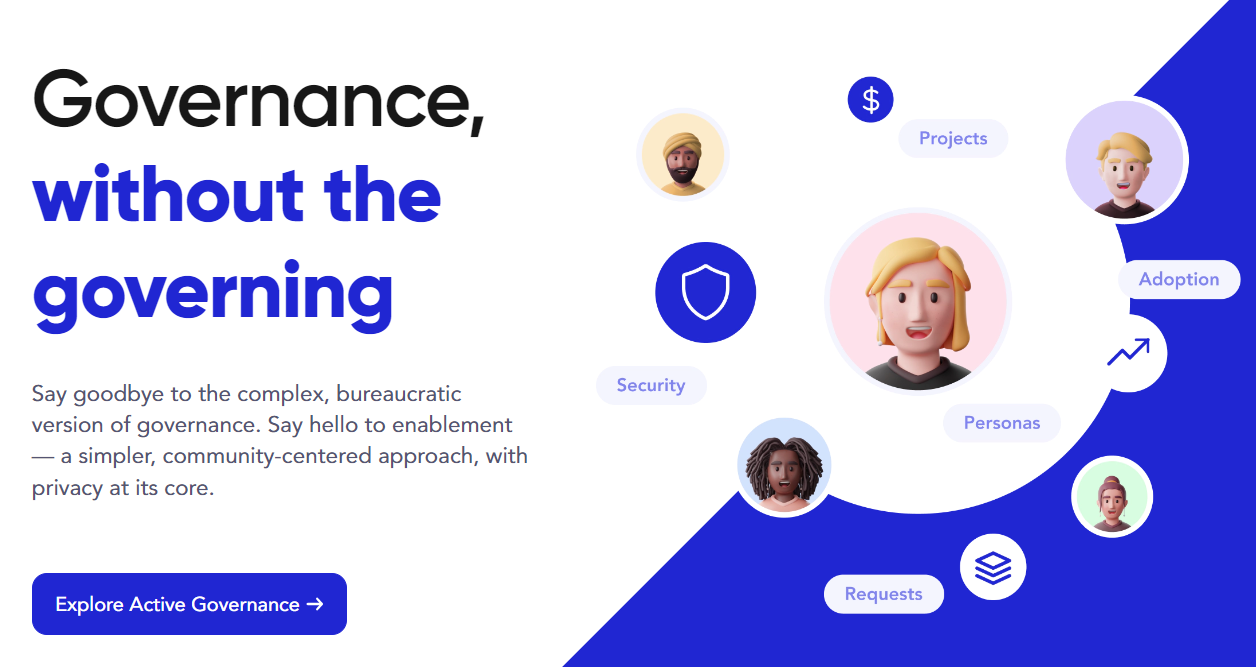
It enables you to classify different data assets as protected by different regulations and policies. In addition, you can use bots to automate the process of classification. You can also secure data using masking and hashing to protect the data.
Furthermore, you can write data access policies around personas, which are the different data users in your business, purpose, which are different use cases for your data, and compliance regulations. Your team members can also suggest changes to policies, and the account manager can approve or decline changes. Atlan is used by many leading tech startups to manage their data.
erwin
erwin offers three primary products to help you with your data governance strategy.
The first is a data catalog that includes metadata management and tools to automate the same.
The second is a data literacy tool that enables data stewards of the different assets to manage business glossaries and automate different data governance workflows so data consumers can quickly and easily find the data assets they need to create reports and analytics dashboards.
The third is a data quality reporting tool that automates the process of reporting how good the data your business owns is. This is because bad-quality data can lead to wrong insights, which makes it a liability rather than an asset.
Semarchy
Semarchy provides an easy-to-use and intuitive interface for managing data quality. It includes functionality for role-based permission management to ensure that only authorized employees get access to data.
This helps protect sensitive data and comply with different privacy regulations. In addition, Semarchy makes it easy to change policies and manage data governance policies. This makes it easier to evolve data governance practices as the organization and its needs evolve.
When you sign up, you get a starter pack that includes some pre-written rules that you can then customize and change per your needs. This means you never have to start with a blank canvas.
Final Words
It is important that your business builds a healthy culture of data governance. While it may seem unnecessary in the short term, the penalties for non-compliance are immense.
Therefore it is important that you adopt a data governance strategy as it will protect your business and help you gain trust in the long term.
More importantly, data governance should not be a task reserved for IT people. Rather, it should be a collaborative task that involves all data users, stewards, and managers where policies continuously evolve to meet needs.
You may also be interested in Data Governance Frameworks.
Si quiere puede hacernos una donación por el trabajo que hacemos, lo apreciaremos mucho.
Direcciones de Billetera:
- BTC: 14xsuQRtT3Abek4zgDWZxJXs9VRdwxyPUS
- USDT: TQmV9FyrcpeaZMro3M1yeEHnNjv7xKZDNe
- BNB: 0x2fdb9034507b6d505d351a6f59d877040d0edb0f
- DOGE: D5SZesmFQGYVkE5trYYLF8hNPBgXgYcmrx
También puede seguirnos en nuestras Redes sociales para mantenerse al tanto de los últimos post de la web:
- Telegram
Disclaimer: En Cryptoshitcompra.com no nos hacemos responsables de ninguna inversión de ningún visitante, nosotros simplemente damos información sobre Tokens, juegos NFT y criptomonedas, no recomendamos inversiones




